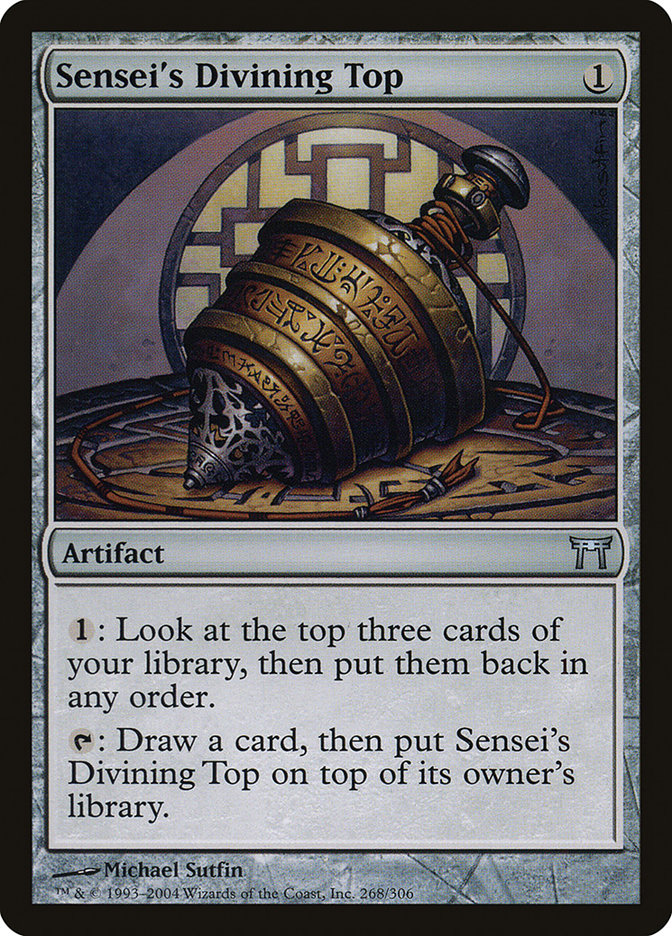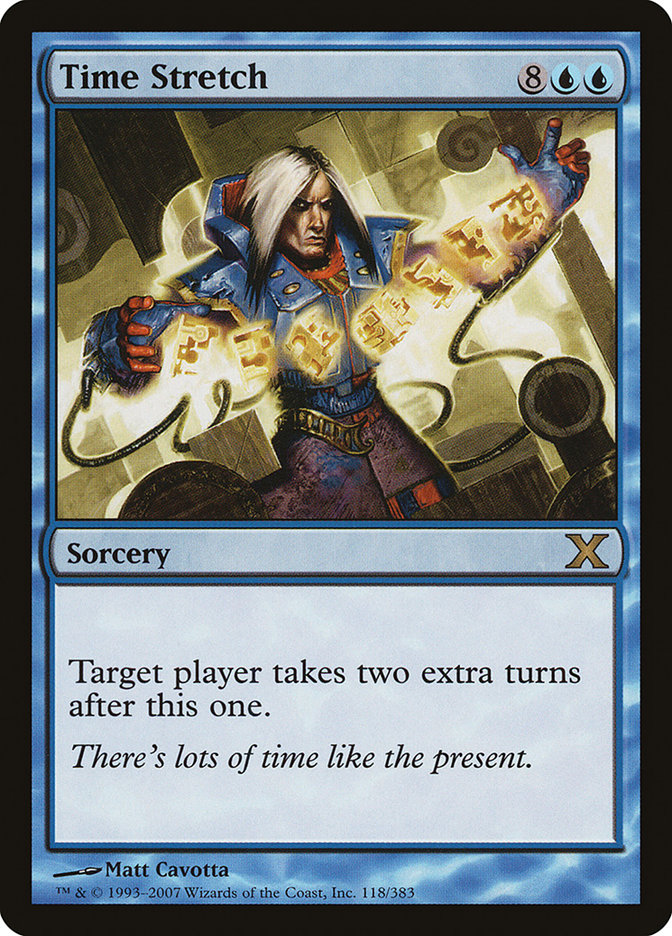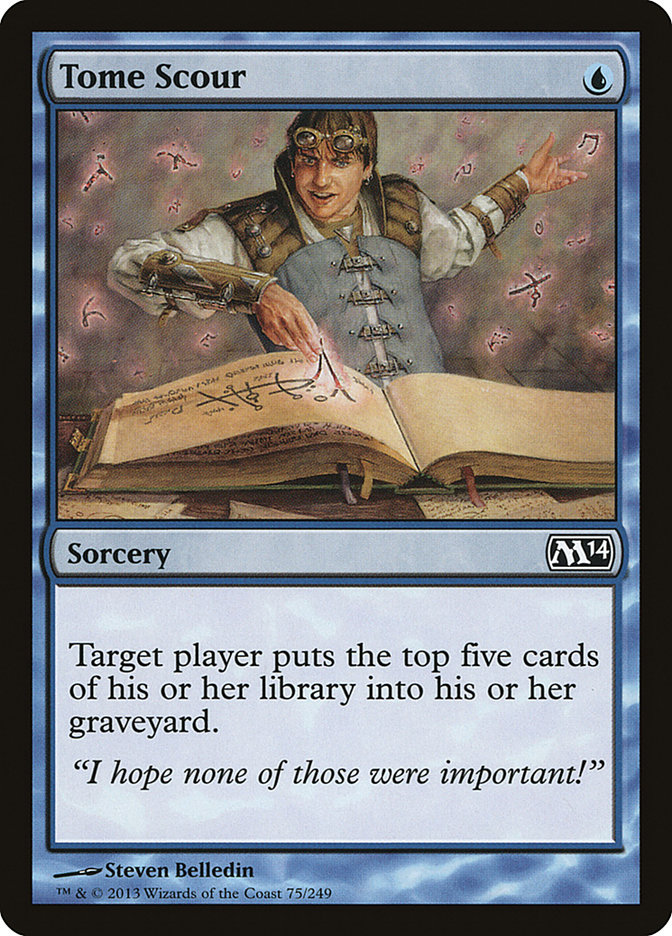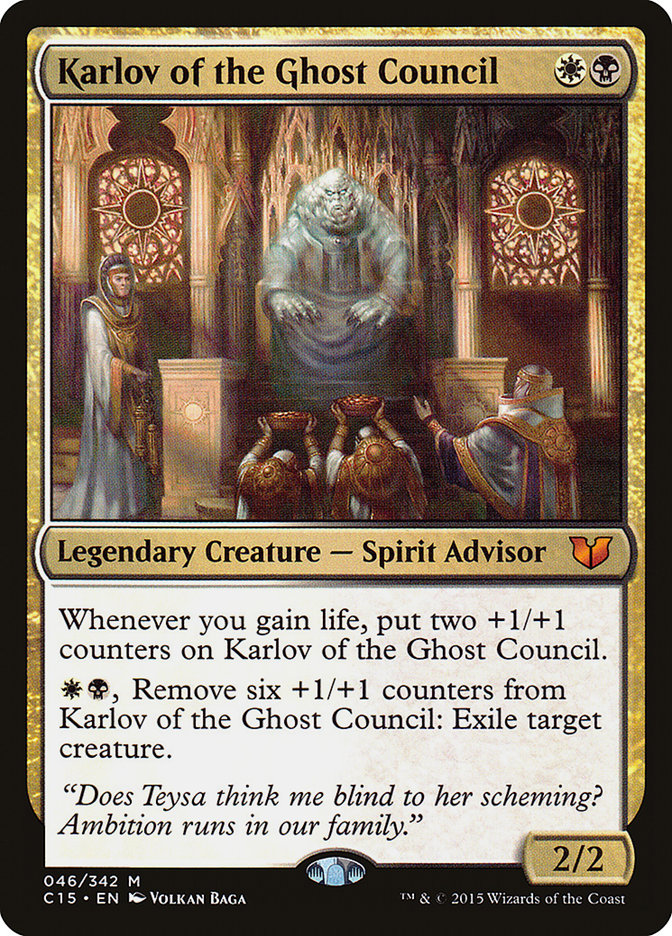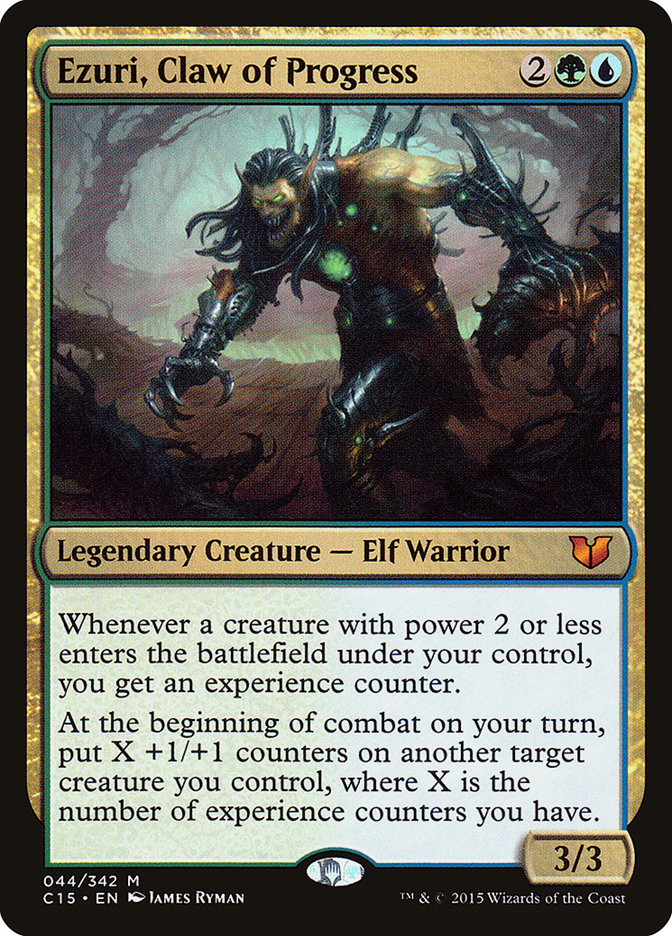Hello friends, and greetings from Fabulous Las Vegas! I’m here in the entertainment capital of the world as I write this after judging the Season Four #SCGINVl. I’m pumped to be part of a phenomenal team of judges and SCG staff, working together to put on a great show for all of our players. Even though I’ve judged a double-digit number of Opens over the past few years, this was only the second #SCGINVI I attended, so that just made it extra exciting.
As usual, I’ve found yet another world-class guest to help me answer your questions about the rules and the judge program. This week’s special guest is Anthony “Krug” Hullings, who’s been a fixture of Opens and other big events in the Northeast United States for the past three years. A few weeks ago at #SCGNJ, Krug hit a major milestone in the judge program by advancing to Level 2!
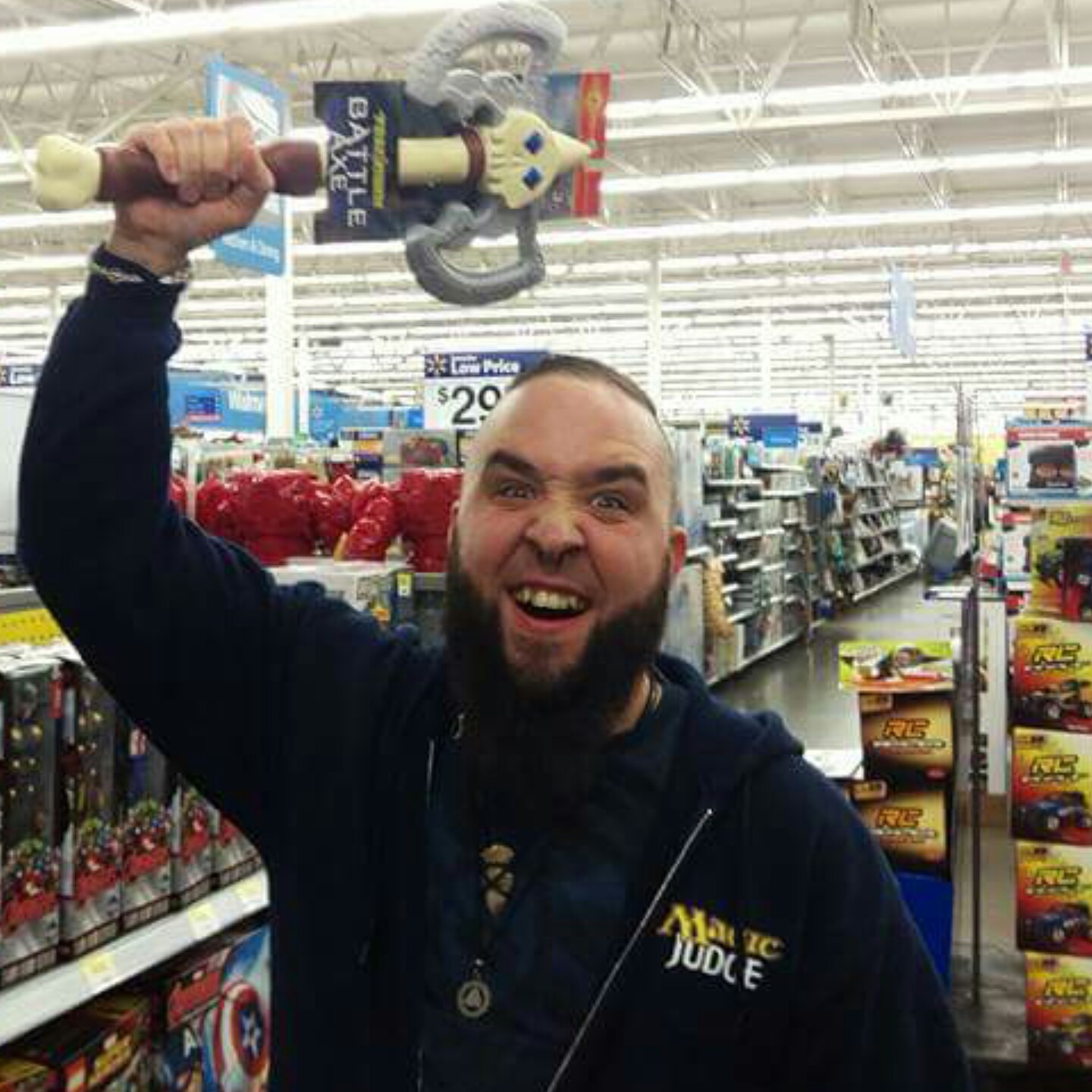
But what is Level 2? Well, answering that question is one of the reasons I invited Krug onto the column! We’re going to change things up a little from previous columns, and instead of starting with answers to rules questions, Krug’s going to share some of his stories and experiences as a judge. Then we’ll tackle a couple questions about tricky judge calls and finish up with a few additional rules questions from Commander 2015. So let’s get started!
Krug, you recently became Level 2 in a pretty incredible fashion. What’s the story?
It was one of the most stressful journeys of my life. Wanting something so badly, but it was just out of reach. I have a difficult time taking tests and get very bad anxiety. But I eventually got there through hard work, determination, and the support of great friends like Nicola DiPasquale (my Level 2 mentor), Mike Noss (my Level 1 mentor), Ilan Seid-Green (my Area Representative), and the many other judges and Magic players who were there to offer great words, advice, and support. Everyone helped me through a very long journey that is just the beginning of a new one.
I’ve taken multiple practice exams. Each one kind of heavier than the last. Every time I sat down after one, Nicola and Mike sat with me to figure out something to help me along the way. I’ve taken them verbally, I’ve taken them as if they were active judge calls. Mike and Nicola even pulled every card on my exams from their personal collections to help me build the boardstate in each question. This worked out the best, paired with them reading the exam aloud for me. I got to interact with the cards and build the exact scenario in the question. When this finally started to work, I was still struggling with some anxiety but doing well overall.
A few weeks ago was #SCGNJ. During the Standard Premier IQ, Mike Noss approached me and told me that I’m going to take two practice tests back to back. Mike believed that the adrenaline and atmosphere from me actively judging would help my testing. So we began. About half way through, I started getting a headache and didn’t want to continue, but Nicola suggested a break and some food. Well that did it! Food was all I needed.
We started back at it, until I just wanted to go home. After all, I was told these tests were just to see where I’m at and didn’t mean anything. I suggested finishing them at my apartment, but Mike wouldn’t budge on this being the perfect atmosphere for me to test. So they made me finish. Around the end of the exam I thought something was a little weird, especially when I hit ten policy questions.
While they were grading the exams, I noticed Nicola jump up and throw his arms up. At that point he walked up to me with tears in his eyes. He informed me that he had lied to me. He showed me the exam and informed me I had been taking an actual Level 2 exam…and I passed!
I didn’t believe it at first. Nicola hugged me and congratulated me. I was so overcome, I fell to my knees. This is something I’ve worked so hard towards and achieved it without knowing. It took several days to finally kick in. But I got there!
What does becoming Level 2 change for you?
Being Level 2 doesn’t change anything about me. My energy, drive, determination, and motivation stay the same. I want to create a safe and fun environment for my players and maintain the integrity of the event for them. My goals are to help other Level 1s become exceptional Level 2s and help judge candidates become exceptional Level 1s.
The only things that have changed are my ability to actually test candidates, I can Head Judge PPTQs, and I’m excited to work my first main event Grand Prix!
What’s the purpose of the level system?
Each level has a specific role to play in the program. The level system helps define and distribute the amount of responsibility for each judge.
Okay, so what’s the difference between a Level 1 and a Level 2 judge? (Thanks to Sam Nathanson for the question!)
Level 1 judges are store judges. They are responsible for their local game store, which usually includes running Friday Night Magic and other Regular REL (Rules Enforcement Level) events. Judges who want to broaden their experience and delve deeper into the program can go further by working on becoming Level 2, or an Area Judge. Level 2 judges are those who are most likely to judge Competitive REL events, like Grand Prix and the SCG Open Series. Being an Area Judge also means that the judge has a working relationship with several stores in their local area. This is important because Level 2s can certify new judges and work with other nearby judges (of all levels) to help their community grow.
Does this mean Level 1 judges aren’t as good as Level 2 judges? (Thanks to Abby Kraycar for inspiring this question!)
The number that is associated with our name does not define us. Our judge level is just there to indicate our responsibilities within the program. Sometimes judges and players focus too much on level, and I really wish that wasn’t a thing. One of the ways to prevent the bias that may show up is to simply avoid calling attention to your judge level.
Max Kahn asks: Lots of players ask me about the term “Level 0.” What does that mean?
“Level 0” is a term that many players and some judges use to identify a judge candidate. They are typically someone who is actively working with a Level 2 judge to become a certified Level 1 judge. However, I believe “Level 0” is a derogatory description. Labeling someone a “Zero” definitely isn’t a positive thing, and I encourage everyone to avoid using the term all together. The correct term is definitely calling a candidate exactly what they are, a Judge Candidate.
Awesome! I totally agree. Thanks for sharing all these thoughts, Krug. Okay, enough about judge levels for a while. Tell me about yourself. Where are you from? What do you do outside of Magic?
I am from Bristol, PA, right outside of Philadelphia, where I’m a Print Operator for an insurance company. I am loud and full of energy. I have a passion for judging and tattoos, which cross over. I have a Black Lotus, the Planeswalker symbol with a Phyrexian symbol inlaid, a Dimir Signet, and many more. Liliana is my goddess and Nicol Bolas is my master. I live to make new friends and will do whatever I can for those of you who are my friends.
When did you become a judge? Why?
I became a judge back around Gatecrash and Dragon’s Maze. My local store already had a judge, but everywhere I played, I saw players taking advantage of one another. So I became a judge to help enforce the rules, protect the integrity of the events in which I was present, and to ensure I can do whatever I can so the players can have an enjoyable experience.
What’s your favorite format? Favorite deck?
My favorite format is Legacy! My favorite decks are Nic Fit (in Legacy) and Cruel Control (in Modern), because who doesn’t love casting Cruel Ultimatum!?
What’s your best tournament result?
At my first #SCGINVI, I launched 35+ drafts in one day! (I judge way more than I play.)
Chas Tanner: On a scale of 1-10, which is your favorite bear Magic card?
My favorite bear card is rated a 10. Although its type is technically Beast, the image of the card is clearly a bear to me. Woodland Bellower is the King of all bears! [For the record, the correct answer is actually Bear Cub. — Bearz]
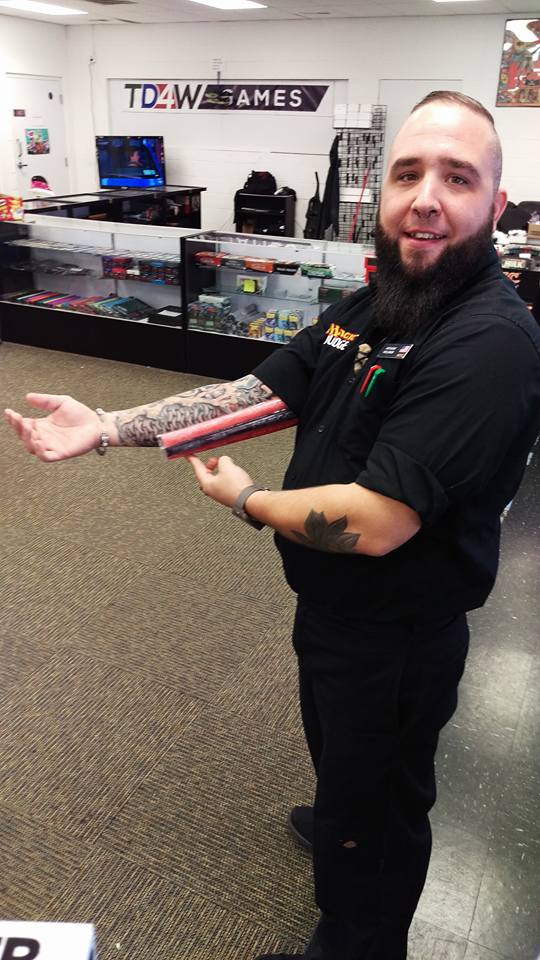
Chase Culpon asks: What’s the deal with the different color lanterns, and how can we apply that to judging Magic?
So, it’s no lie that I have an unhealthy obsession with the Green Lantern Corps. I wear my ring every day, and have a tattoo to commemorate this obsession. Each color of the spectrum of lights in the DC Universe corresponds with an emotion. It would be fun to think of a way to break these down into judge responsibilities at a big event, like a Grand Prix or the #SCGINVI. Let’s try:
Red: Rage — Deck Checks — Deck are very frustrating when I can’t read a player’s handwriting!
Orange: Greed — Coverage — Typically there is only one Orange Lantern, and there are usually two coverage judges, so it mostly fits.
Yellow: Fear — Appeals — Judges are sometimes afraid of being appealed (but it’s really not a big deal!).
Green: Willpower — Team Leads — In charge of keeping order and approving some rulings.
Blue: Hope — Scheduled Sides — Everyone hopes for a second chance!
Indigo: Compassion — Stage Staff — Customer relations is heartfelt job.
Violet: Love — Floor Judging — Floor judges have a special spot in their hearts for providing great customer service to our players.
White: Life — Head Judge — The event is the Head Judge’s show.
Black: Death — Testing — I know in my case, failing a test is pretty demoralizing!
—
Thanks, Krug!
Like Krug said, the level system does have an important purpose—and that purpose is to outline the role and scope that different judges have, not their skill or abilities. I think one of the best ways to realize this is to think about what happens when a judge decides to step down from a high level to a lower one. When someone moves from Level 4 to Level 3, for example, that doesn’t mean they suddenly lost some magical power that helped them memorize the rules and make correct rulings; it means they decided to focus on a narrower, different set of responsibilities for a while. The same is true between Level 1 and Level 2.
Sometimes I hear players disparaging lower-level judges, and that’s very upsetting. Every floor judge at an event is equivalent to each other floor judge, regardless of level. It’s important for both players and judges to treat everyone equally and fairly.
Let’s get to some of the other questions I mentioned. One of them touches on slow play, which is a very complex topic that’s hard to talk about fully in just a paragraph. Is this something you’d like to hear more about? Let me know your thoughts when you can! Finally, we’ll wrap up with a couple more questions about cards from Commander 2015.
Felix Grezes asks: As a player, how do I recognize and deal with slow play?
(Krug) Slow play is something that should be taken much more seriously in my opinion. If you feel your opponent is playing slowly, they just may be. There is no reason to get aggressive or unruly with them though. You can ask your opponent directly to play faster. If this doesn’t seem to work, just raise your hand and call for a judge. When the answering judge gets to you, ask them to sit and watch your match for slow play. This can help prevent your opponent from getting defensive.
Chas Tanner asks: Can you ask a judge show you the rule for whatever ruling you’re getting on their magical cellular telephone?
(Krug) So, there is no problem asking a judge to show you the relevant rule that helped them come to a ruling. The only issue may be time. If you are in the middle of a match and the clock is ticking, it would be much better to ask to talk to the judge about the ruling after the match, especially because it may also take some time to look up the exact rule in question. (Some judges know all the reference numbers like the back of their hand, but not all of us…)
I cast Righteous Confluence, choosing to gain 5 life three times. How many counters does my Karlov of the Ghost Council get?
(Bearz) Six! Choosing the “gain 5 life” mode on Righteous Confluence means you gain five life, then gain five life again, and then gain five life a third time. These are all separate events, and Karlov triggers for each of them. The Orzhov are, after all, nothing if not generous…so maybe you’d like to donate some of those counters to the church?
Jonathan Salvadori asks: Can I proliferate experience counters?
(Bearz) Sure! Just like you can use proliferate to give your opponents another poison counter, you can also use proliferate to give yourself another experience counter. You can even give some of the other players another experience counter — which makes for great multiplayer politics!
How does Mizzix of the Izmagnus work with X spells, like Stroke of Genius?
(Bearz) Both of Mizzix’s abilities work pretty well with X spells! When you cast a spell with X in the mana cost, you choose the value of X first. Then you work on figuring out the total cost of the spell by applying cost increases, cost reductions, and wacky effects like Trinisphere. So Mizzix’s second ability will apply to whatever value of X you choose. This effectively means you can increase X by the number of experience counters you have, for free!
Moreover, the converted mana cost of a spell is unaffected by all these cost reductions. So you’ll often be able to trigger Mizzix’s first ability with an X spell, leading to even more experience and even bigger X spells. Ingenious!
***
Well, that’s all we have time for today. As always, if you have any questions about rules, the judge program, or tournament policy, let me know! I’d be happy to answer them, and your question may even be included in a future edition of Ask a Judge. The best way to get in touch is by emailing [email protected].


